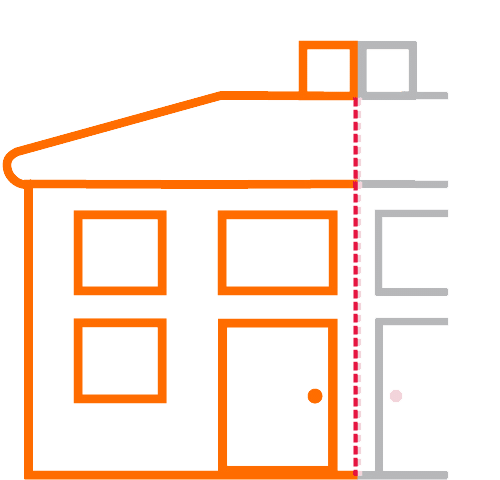Evaluating the Return on Investment of Insulation Upgrades
When considering the return on investment of insulation upgrades, it’s essential to look beyond the initial cost and focus on the long-term benefits. Quality insulation not only reduces energy consumption but also enhances the comfort of your home by maintaining a consistent temperature throughout the year. This improvement in energy efficiency can lead to substantial savings on utility bills over time, making the investment in insulation upgrades a financially sound decision for homeowners.
In addition to the financial benefits, upgrading insulation can also increase the overall value of your property. Prospective buyers are increasingly looking for energy-efficient homes, and having well-insulated walls, floors, and roofs can be a significant selling point. By investing in quality insulation upgrades now, homeowners can not only enjoy lower energy costs but also potentially see a higher return on their investment when it comes time to sell their property.
LongTerm Cost Savings of Investing in Quality Insulation
Investing in high-quality insulation for your home can lead to significant long-term cost savings. By ensuring that your home is properly insulated, you can reduce the amount of heat lost during colder months, therefore lowering your heating bills. Quality insulation also helps maintain a consistent temperature in your home, reducing the need for frequent adjustments to your thermostat, which further contributes to energy savings.
Moreover, by investing in quality insulation, you can extend the lifespan of your heating and cooling systems. When your home is well-insulated, your heating and cooling systems do not have to work as hard to maintain a comfortable temperature, reducing wear and tear on the equipment. This results in lower maintenance costs and a decreased likelihood of premature system failure, saving you money on repairs or replacements in the long run.
Energy Conservation Incentives for Insulation Upgrades
There are various incentives and schemes available to encourage homeowners to invest in improving their insulation. The government offers a range of programmes and rebates aimed at reducing energy consumption and carbon emissions through better insulation practices. By taking advantage of these incentives, homeowners can not only make their homes more energy-efficient but also save money in the long run on their energy bills.
Professional energy audits play a crucial role in identifying areas where insulation upgrades can have the most significant impact. These audits provide a comprehensive assessment of a property’s energy usage and efficiency, pinpointing where improvements can be made to enhance insulation performance. By utilising the information gathered from energy audits, homeowners can make informed decisions about investing in quality insulation that will deliver tangible energy savings and environmental benefits.
Government Programs and Rebates for Improving Home Insulation
Government programs and rebates play a significant role in encouraging homeowners to improve the insulation of their homes. By offering financial incentives, such as rebates or tax credits, the government aims to promote energy efficiency and reduce carbon emissions. These programs not only benefit the environment but also help homeowners save money on their energy bills in the long run.
In addition to financial incentives, government programs often provide valuable resources and information to assist homeowners in making informed decisions about insulation upgrades. By participating in these programs, homeowners can access professional guidance on the most cost-effective insulation options for their properties. Overall, government initiatives create a win-win situation by fostering energy conservation and supporting individuals in enhancing the comfort and efficiency of their homes.
The Role of Professional Energy Audits in Optimising Insulation
Professional energy audits play a crucial role in maximising the effectiveness of insulation in homes and buildings. These audits are conducted by trained professionals who assess the energy usage and efficiency of a property, identifying areas where insulation improvements can lead to significant energy savings. By utilising specialised tools and techniques, energy auditors can pinpoint weak spots in the building envelope that contribute to energy wastage, such as inadequate insulation or air leaks.
Moreover, energy audits provide homeowners and businesses with a comprehensive understanding of their energy consumption patterns and potential areas for improvement. This detailed assessment enables property owners to make informed decisions about upgrading their insulation to enhance energy efficiency and ultimately reduce their utility bills. Investing in a professional energy audit is an essential step towards creating a more sustainable and cost-effective living or working environment, ensuring that insulation upgrades are targeted and effective in promoting long-term energy conservation.
How Energy Audits Help Identify Insulation Improvement Opportunities
Energy audits play a crucial role in uncovering potential areas for improvement in insulation within a property. By conducting a thorough examination of the building’s energy usage and efficiency, auditors can pinpoint specific areas where insulation upgrades could yield significant benefits. These audits involve a comprehensive assessment of factors such as air leakage, thermal performance, and overall energy consumption patterns.
Through the findings of an energy audit, homeowners and property owners can gain valuable insights into the most effective strategies for enhancing insulation efficiency. This may include recommendations for installing additional insulation in certain areas, sealing air leaks, or upgrading existing insulation materials. By acting upon the recommendations provided as a result of the audit, individuals can make informed decisions to maximise energy conservation and reduce overall heating and cooling costs.
FAQS
Table of Contents
ToggleWhat are the benefits of effective insulation on energy conservation?
Effective insulation helps to maintain a consistent indoor temperature, reducing the need for heating and cooling systems and ultimately lowering energy consumption.
How can investing in quality insulation provide long-term cost savings?
Quality insulation can significantly reduce energy bills by improving the thermal efficiency of a building, leading to long-term cost savings on heating and cooling expenses.
Are there any incentives available for upgrading insulation to promote energy conservation?
Yes, there are various government programs and rebates aimed at incentivising homeowners to invest in improving their home insulation to enhance energy conservation efforts.
How can professional energy audits assist in optimising insulation for better energy conservation?
Professional energy audits help homeowners identify areas of improvement in their insulation, allowing them to make informed decisions on how to optimise their energy conservation efforts.
What role do energy audits play in identifying opportunities for insulation upgrades?
Energy audits assess the current energy efficiency of a property, highlighting any insulation deficiencies and recommending upgrades to enhance the overall energy conservation of the building.
Related Links
Benefits of Proper Insulation for Energy Saving in British Homes
Understanding the Role of Proper Insulation in Energy Efficiency





